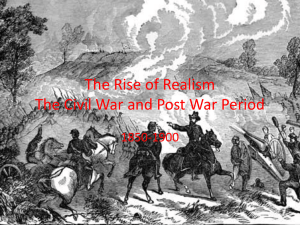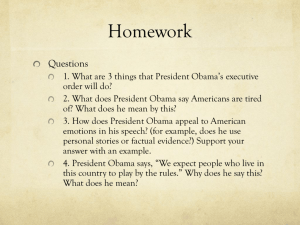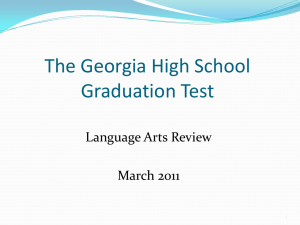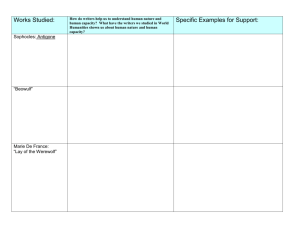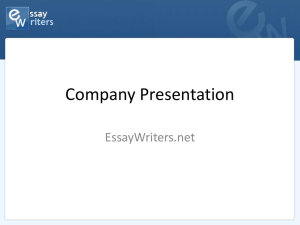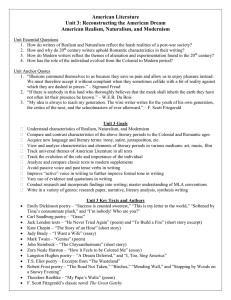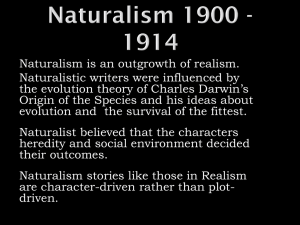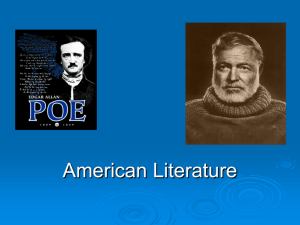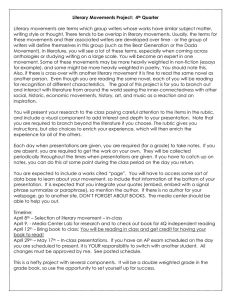Civil War PPT
advertisement
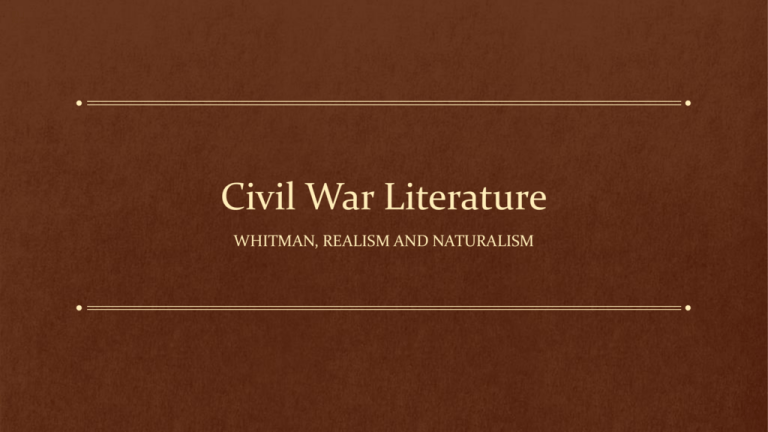
Civil War Literature WHITMAN, REALISM AND NATURALISM Walt Whitman • Last of the Romantic poets – bridges the gap between the Romantics and Realists of the post Civil War Era • Focused on the self, the physical body, and the potential of humanity • Saw great potential in the country due to its immigrant roots and incredible diversity • Also understood the more unpleasant parts of being a growing nation • Fear • Anger • anxiety Whitman’s Structure – or lack thereof • Free Verse – poetic verse that lacks a regular rhythm, rhyme and meter • Anaphora – repetition of phrases throughout poetry • Catalog – list of items in poetry • Diction – word choice, how the author influences meaning and interpretation with specific selection of words Writer and Society • Literary Forms for Expressing Social and Political Issues • • • • Muckraking journalism Slave spirituals Slave narratives – Frederick Douglass, Harriet Jacobs Soldiers’ diaries and war journals • Popular Literature • Rags to riches tales • Irony – Gift of the Magi • Fantasy/escapist literature (Wizard of Oz) • Realism, naturalism, and the Social and Political issues • Depicts the reality and gruesomeness of war • Rise of technology leads to fear and ill-favor • Nature becomes the enemy of man A man said to the universe: "Sir I exist!" "However," replied the universe, "The fact has not created in me A sense of obligation." Place and Literature • Writers of the North • Tech advances -> movement into larger cities; bigger, stronger was better • Writers focused on crowded environments, work, crime, immigrants, organized labor • Southern Writers and the Physical Environment • War destroyed the idyllic plantations of the south, leading to stories of loss and destitution • Southern writers focused on the distinctive qualities of the south, genteelism, hospitality, racism, • Expressions of Place in Civil War Writing • Local color – dialects, accents, attitudes • Mark Twain, Willa Cather, Zora Neale Hurston (later) What makes American Literature American? • Literary Elements • Settings: wild west, riverboats, Yukon wilderness, battlefields, tenements, • Language: common speech and dialects, vulgarities • Humor: exposed corruption, dissect and deconstruct human problems • Roles of Civil War Writers • Realists – a more OBJECTIVE outlook, looked at hard facts not impressions • Naturalists – pitted man against nature, with man losing more often than not • People’s fate controlled by Heredity, environment, and social conditions • People could NOT rise above their circumstances • Writers tried to document the true settings and people of the time Names and Terms to Know • Fort Sumpter – Fort in SC where Civil War started • Homestead Act – 1862, promised 160 acres to anyone who was willing to work them • Guilded Age – period of low wages, disease, child labor, very few wealthy – conspicuous consumption • Horatio Alger – wrote rags to riches tales for young adults • The Red Badge of Courage - Stephen Cranes novel about the Civil War, depicts the loss of innocence • Local Color – character and details particular to a specific region, particularly the west and south.
